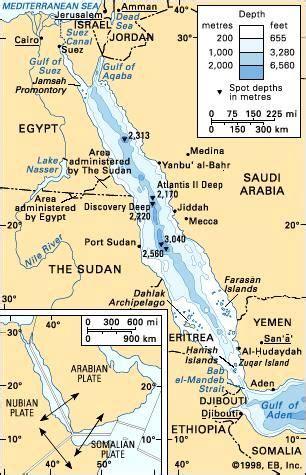
Explained: What’s going on in the Red Sea?
There’s been a flurry of activity regarding the Red Sea and Houthi attacks – so let’s clear up exactly what we know.
Background
The Yemen-based, Iran-backed Houthi militia have been attacking ships in the Red Sea in response to Israel’s war in Gaza.
The group, which supports Hamas, has vowed to target vessels which it believes are heading to and from Israel.
It emerged on Saturday that Royal Navy warship HMS Diamond, sent to the region two weeks ago, had shot down a drone in the Red Sea that was deemed a threat.
The Houthis have particularly targeted ships in the Bab al Mandeb Strait – a thing strip of the Red Sea which separates Yemen from Djibouti and Eritrea.
Attacks and incidents
It has attacked several ships in recent weeks with drones, rockets and in some cases has used helicopters to drop militants onto commercial vessels.
These attacks are regular and becoming more frequent.
Today, for example, the United Kingdom Maritime Trade Operations (UKMTO) has noted an attack on at least one British ship off the port of Mokha in Yemen.
Houthi rebels have claimed responsibility for launching an attack on two ships – the Norwegian-owned Swan Atlantic and the Panama-flagged MSC Clara – using drones.
It’s not clear yet whether they are referring to the same incident.
Suspensions and reroutes
With the increase in attacks comes reaction from big players – with a number of commercial ships being diverted away from the area, which includes Egypt’s Suez Canal.
Oil giant BP announced it was suspending all shipping via the Red Sea as a result of the attacks, citing the safety of crews and vessels as its principle reason for doing so.
BP followed in the footsteps of shipping giants Maersk, Swiss-based MSC and French group CMA CGM in avoiding the area.
Hapag-Lloyd later added its name.
Evergreen, a huge Chinese shipping company, has also announced that it had temporarily suspended import and export services in Israel until further notice, citing the security risk, in addition to halting journeys via the Suez Canal.
Norway-based oil tanker group Frontline has said its vessels will avoid passages through the Red Sea and the Gulf of Aden for the time being.
And Maersk has said a surcharge will be applied to Israeli import cargo.
The bigger picture
So what does it all mean?
Experts estimate it adds about 10 days onto a journey from Asia to North Europe and East Mediterranean – representing an increase of nearly a third.
The same experts do not expect disruption on the same scale as in 2021 – when container ship Ever Given ran aground in the Suez Canal, blocking dozens of container ships carrying products ranging from mobile phones to designer goods for six days.
It will likely put even more pressure on Israel to complete its war in Gaza, however, with the Houthi group claiming its attacks on shipping in the area is in direct consequence.
Additionally, London’s marine insurance market has widened the area in the Red Sea it deems as high risk amid a surge in attacks on commercial ships, according to a statement issued earlier today.
Source » sky.com





